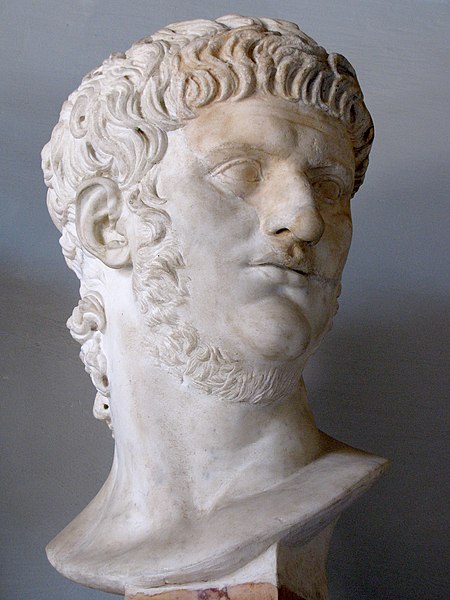Suetonius, Divus Julius Caesar 86-7
“Caesar left certain of his friends the impression that he did not want or desire to live longer because of his worsening health. This is why he ignored what the omens warned and what his friends revealed. Others believe that he dismissed the Spanish guards who accompanied him with swords because he was confident in the Senate’s recent decree and their sworn oath. Others report that he preferred to face the plots that threatened him at once rather than cower before them. There are those who assert that he used to say that his safety should be of more importance to the state than to himself: he had acquired an abundance of power and glory already, but the state, should anything happen to him, would have no rest and would suffer civil war in a worse condition than before.
The following is generally held to be the case, however: his manner of death was scarcely against his desire. For, when he read Xenophon’s account of how in the final days of illness Cyrus gave the plans for his own funeral, Caesar expressed disdain for so slow a death and wished that his own would be sudden and fast. And on the day before he died during dinner conversation at the home of Marcus Lepidus on the topic of the most agreeable end to life, Caesar said he preferred one that was sudden and unexpected.”
Suspicionem Caesar quibusdam suorum reliquit neque uoluisse se diutius uiuere neque curasse quod ualitudine minus prospera uteretur, ideoque et quae religiones monerent et quae renuntiarent amici neglexisse. sunt qui putent, confisum eum nouissimo illo senatus consulto ac iure iurando etiam custodias Hispanorum cum gladiis †adinspectantium se remouisse. [2] alii e diuerso opinantur insidias undique imminentis subire semel quam cauere … solitum ferunt: non tam sua quam rei publicae interesse, uti saluus esset: se iam pridem potentiae gloriaeque abunde adeptum; rem publicam, si quid sibi eueniret, neque quietam fore et aliquanto deteriore condicione ciuilia bella subituram.
illud plane inter omnes fere constitit, talem ei mortem paene ex sententia obtigisse. nam et quondam, cum apud Xenophontem legisset Cyrum ultima ualitudine mandasse quaedam de funere suo, aspernatus tam lentum mortis genus subitam sibi celeremque optauerat; et pridie quam occideretur, in sermone nato super cenam apud Marcum Lepidum, quisnam esset finis uitae commodissimus, repentinum inopinatumque praetulerat.




